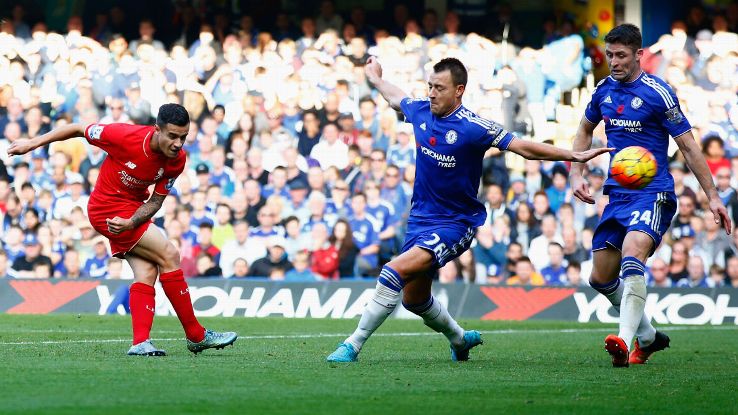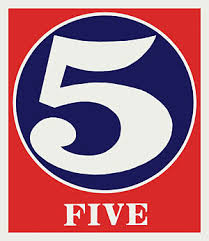Note: Today is the launch of the 2016 - 2017 season in the English Premier League. This is the sport you should adopt as your favorite this Fall. In that light, I am re-running a piece from last October where I laid out the case for you. Go Liverpool!
10 Reasons Why You Should Quit the NFL for the Premier League
October 31, 2015
I am up early on a Saturday taking in Barclays Premier League match between my beloved Liverpool Reds and Chelsea, the defending Premier League champions currently mired in a slow start to the new season. I watch a fair bit of sports on TV, (I have pretty much no life), but after many years of increasing interest and appreciation of top-level soccer, I have mostly given over my Fall and Winter weekends to the Premier League, and have pretty much lost interest in the much more popular, (here in the US anyway), American football games (both college and in the NFL).
Why is that? Why have I basically given up on American football, with only a passing interest in the country's most popular sport? Here are 10 reasons, just off of the top of my head. And if you are saying to yourself, 'Who cares what sports Steve likes?', I would answer, 'Probably no one. But it is my blog. And I am up early on a Saturday and this is what I feel like writing about.' So there.
Ok, here are 10 reasons why I, (and maybe you too), should quit the NFL for the Premier League:
1. Soccer has about 3 rules you need to understand in order to appreciate the action. Sure, there are more rules than that, but the essential ones are very few, they are pretty simple, (we teach 4 year olds how to play using these rules), and you can grasp them in about the first 15 minutes of watching a game. American football, and the NFL in particular, has about 3,593 rules, many if not most of them are incredibly complex, vary in their application, and even 'experts' of the game often fail to understand them. NFL football is akin to the worst of governmental or corporate bureaucracies - hopelessly dense, complex, and often unexplainable.
2. Because of this complexity in the rules, NFL games are interrupted dozens of times (and on EVERY punt or kickoff it seems), by penalty flags, interminable on-field conferences amongst the numerous game officials, and delays in the game for video reviews, often frame-by-frame, of controversial plays. Again, the NFL resembles the worst in big corporations in that the games are really just a few seconds of actual things happening that are interrupted by meetings of paunchy, middle-aged men discussing and attempting to explain what just happened.
3. Let's talk about the actual game action then. A Premier League game consists of two 45 minute halves with the clock running constantly, with a few minutes of 'extra' time usually added for injuries and other delays. Add in a 15 minute halftime break, and the normal (meaning EVERY one), Premier League game takes a bit under 2 hours to complete, start to finish. It is a perfect amount of time to dedicate to a sporting event, a movie, a dinner with your in-laws - pretty much anything. NFL and especially college football games regularly require 3 to 3.5 hours to complete. And for the amount of actual action that occurs in a game, (see Point 4), 3.5 hours for a sporting event is just insane.
4. It has been estimated that the average NFL game, the game that takes about 3.5 hours to complete, and has 60 minutes of official game time, actually has only between 7 - 8 minutes of action, i.e., where the players are actually PLAYING football. The rest of the time consists of players walking back to the huddle, standing in the huddle, walking back to the ball from the huddle, and waiting for the quarterback to scream a series of incomprehensible commands and making wild gesticulations. The ball is then put into play for a few seconds, (the average NFL play lasts about 7 seconds), and the entire process is repeated. Unless it is interrupted by a penalty flag and a corporate board meeting by the aforementioned old men. Football is 3.5 hours of almost nothing happening.
5. Premier League soccer (and all soccer really), consists of 90 minutes of almost constant action. There are no 'time outs', there are fewer delays for penalties and fouls. When there is a foul the one on-field referee in charge makes the decision, and the ball is put back into play quickly. There are no meetings to talk about the fouls, there are no lengthy delays to 'check the video replay', and there are no 'coaches challenges' like in American football. Soccer realizes, correctly, that it is a GAME, and not every tiny decision needs to be examined under a electron microscope.
6. While the rest of this post is a little cheeky, this point is pretty serious. While injuries happen in all sports, and sometimes they are serious injuries, for the most part soccer at all levels is much, much safer than football. Despite all the advances in protective equipment, the nature of football leaves almost EVERY player injured at some point. While NFL players are grown men, and are compensated well to accept these risks, the culture of American football extends much further into society, where the participants are neither grown men or compensated at all for these risks. This season alone 7 high school football players have died from direct football related injuries. Read that again. SEVEN high school kids have DIED from playing football. I find it incredible that 99.9% of American society is ok with that.
7. In the US, Premier League games (that last a total of 2 hours like I mentioned), are played in the morning across all US time zones. That means you can wake up early, take in a couple of matches, and still be free by Noon or so to do whatever it is you SHOULD be doing on the weekend instead of sitting on the sofa watching sports. You can get your fill of game action and still not be a jerk to your family or friends who don't care about your fantasy team and want you to be an actual contributing member of society on Saturdays and Sundays, and not some loser who is constantly checking his phone to see how many receiving yards Odell Beckham Jr. has racked up.
8. The match commentators for the Premier League games are exceedingly better and more entertaining than their NFL counterparts. Premier League commentators use words like 'comprehensive' and 'beguiling' and describe players with phrases like 'He is a wily campaigner'. NFL game analysts mostly like to talk about what team coaches said to them in meetings the day before the game. When NFL commentators try to move past the obvious 'The team that makes the least mistakes will win today', and get into the intricacies of the game action, 'Tampa rolled their high safety over to the weakside to guard against the naked bootleg action from Seattle', almost no one watching the game has any idea what they are talking about.
9. And speaking of TV coverage, in the US anyone with a decent cable sports package has access to EVERY SINGLE Premier League game on LIVE. Every game is on TV. In the NFL, America's most popular sport, the only way you can get access to every game live on TV is to subscribe to the satellite TV provider DirectTV and order a premium NFL package to get access to all the games live. There are a couple of ways to get access to streams of NFL games as well. But in 2015 the fact that I as a subscriber of Time Warner Cable, one of the largest cable companies in the US, can't order up or subscribe to any NFL game that I would like to see on my TV is absolutely insane.
10. (I promise this is the last one. If you have made it this far well, bless your heart). The pinnacle of the NFL season, the Super Bowl, is primarily enjoyed by millions not for the actual game, 'Who is playing again?', but for the TV commercials. The actual game is just a side note for the commercials, the halftime show, the endless tweets and columns about which big corporation 'won' the game by having the best TV spot, and the discussions of what kind of plausible excuse can you come up with to call in sick to work the next morning. Aside for the fans of the two teams playing, and the people who have bet on the game, no one really cares which team wins the game. Let's talk more about that Doritos spot instead.
That is it. I am out. Thanks for indulging me.
And by the way, Liverpool 3 - Chelsea 1 - Full Time. Go Reds.
----------------------------------------------------------------------------


 Steve
Steve




